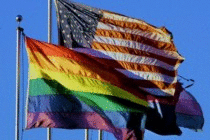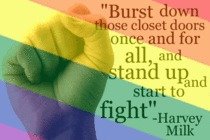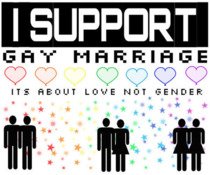 Registrar of Newspapers in India denies permission for popular gay e-magazine to be published in print
Registrar of Newspapers in India denies permission for popular gay e-magazine to be published in printThe Delhi High Court may have ruled in favor of India's Lesbian, Gay, Bisexual and Transgender (LGBT) community, but their battle for acceptance is far from over. The latest setback has come from the Registrar of Newspapers in India (RNI), which seems to have denied the community the right to express itself.
With the RNI recently denying India's most popular online LGBT magazine "Pink Pages" the permission to publish print version of the magazine, activists across the country are crying foul. "The worst part is that no reason was given for rejecting the application. The least we deserved was an explanation. We have been following up with the authorities for months now," said Harish Iyer, a Mumbai-based columnist for the magazine.
The monthly e-magazine was launched in July 2009 and created a record of sorts as more than 10,000 e-copies of the magazine were downloaded. Following its success, the Pink Pages team decided to publish print versions of the magazine, but their application to print the issue was rejected by government authorities late in October. With there being no response from the authorities concerned, the team has decided to take legal recourse.
Bangalore-based Editor-in-chief of the magazine Udayan Dhar said that the first step was to file an RTI application. "We will go through the right channels to find out why our application was rejected. I doubt if the authorities would tell us the real reason behind the denial. But we have a team of legal experts ready to fight for our rights," he said.
Some magazines catering to the LGBT community are already in print, Dhar said, adding that they got permission as they did not declare the exact nature of the content, but registered themselves under categories like gender and sexual health. "We were clear that we are a magazine for the lesbian and gay community," said Dhar. The magazine has also received support from the LGBT community to launch signature campaigns and protests against the RNI's decision, he added.
Meanwhile, gay rights activists from across the country came out in support of Pink Pages. "I am not sure if their application got rejected because it's an LGBT magazine. There are similar magazines being printed in other cities. But I feel it is their right to publish their magazine's print version. If magazines promoting Maoist ideologies and communalism can get permissions, then why not a harmless pro-LGBT community magazine?" said Ashok Row Kavi, a founder member of Bombay Dost, India's first gay magazine.
In all, there are seven LGBT magazines in the country, of which some are online, while others are being printed. While Fun and Fantasy are published from New Delhi, Jiah and The Queer Chronicle (both Pune-based) and Gaylaxy (from Kolkata) are e-magazines.
Activists say that a certain mindset against queer literature might work against such magazines. "When we organised the first film festival for the LGBT community, we were asked if we would screen pornographic films. I think a huge problem we face is that people associate nudity and porn to gay literature or movies. I suggest we first create acceptability about our content by spreading awareness, and then fight for our freedom of expression," said Keith D'Silva, editor of The Queer Chronicle.
Sagar, co-ordinator of recently conducted Q-fest in the city, agreed that the misconception people have about queer literature being pornographic in nature could be a reason Pink Pages was denied permission. "Such reservation does not entirely stem from the nature of the magazine, but from its content. We have to convince the authorities that our content is suitable for all age groups and a mass audience," he said.
No officials from the RNI were available for comment.












No comments:
Post a Comment